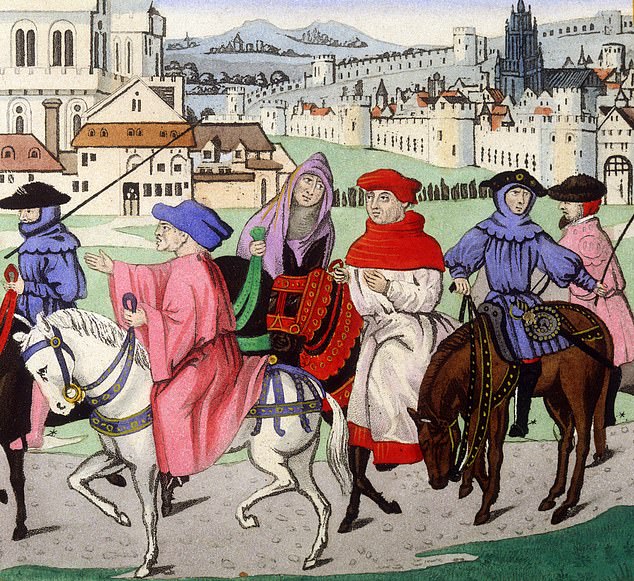A leading university has sparked fury for putting a “ridiculous” warning on Geoffrey Chaucer’s The Canterbury Tales because they contain “expressions of the Christian faith”.
Critics accused the University of Nottingham of ‘degrading education’ for warning students about the religious elements of works of medieval literature that tell the story of a pilgrimage to one of the most important cathedrals in all of Christendom.
They said the professors were guilty of “virtue signaling,” adding that anyone studying such a famous collection would not need Christian references pointed out to them.
The Mail on Sunday obtained details of the notice issued to students studying a module called Chaucer and His Contemporaries under freedom of information laws.
It alerts them to incidents of violence, mental illness, and “expressions of Christian faith” in the works of Chaucer and his fellow medieval writers William Langland, John Gower, and Thomas Hoccleve.
The Canterbury Tales is a collection of stories about people on a pilgrimage from London to the tomb of Saint Thomas Becket in Canterbury Cathedral.
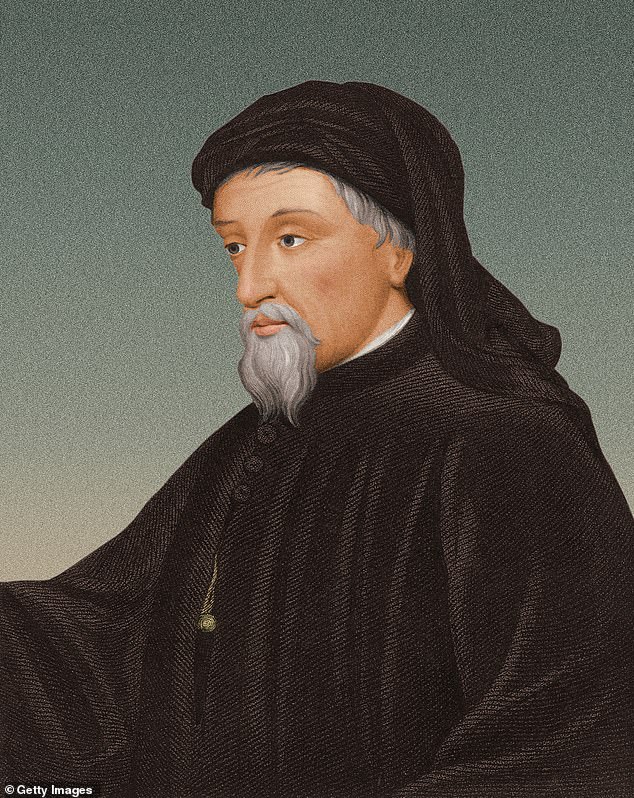
The English author Geoffrey Chaucer lived from 1343 to 1400 and wrote The Canterbury Tales.
The Canterbury Tales, written between 1387 and 1400, are a collection of stories about people on a pilgrimage from London to the tomb of Saint Thomas Becket in Canterbury Cathedral.
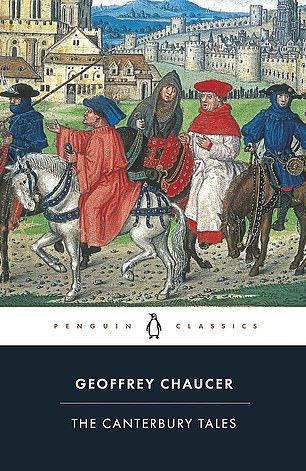
The Canterbury Tales were written by Geoffrey Chaucer between 1387 and 1400.
These include the promiscuous Wife of Bath, the drunken miller, and the thief, who delight and surprise each other with stories containing explicit references to rape, lust, and even anti-Semitism.
However, the university’s warning does not refer to anti-Semitism or sexually explicit themes.
Other texts from the university module that are covered by the warning include ‘Sir Gawain and the Green Knight’, a poem full of Christian themes and beliefs.
Another author on the list, Langland, writes of “rich ecclesiastical politics” and “Christian virtue” in the classic poem “Piers Plowman.”
Pressure group Christian Concern said the revelation raised questions about why “trigger warnings” are needed in classical texts and whether there would be similar warnings for other religious and philosophical beliefs.
Andrea Williams, chief executive of Christian Concern, said: ‘The Bible is fundamental to understanding the history of English literature. Without an understanding of the Christian faith, students will have no way to access the world of Chaucer and his contemporaries.
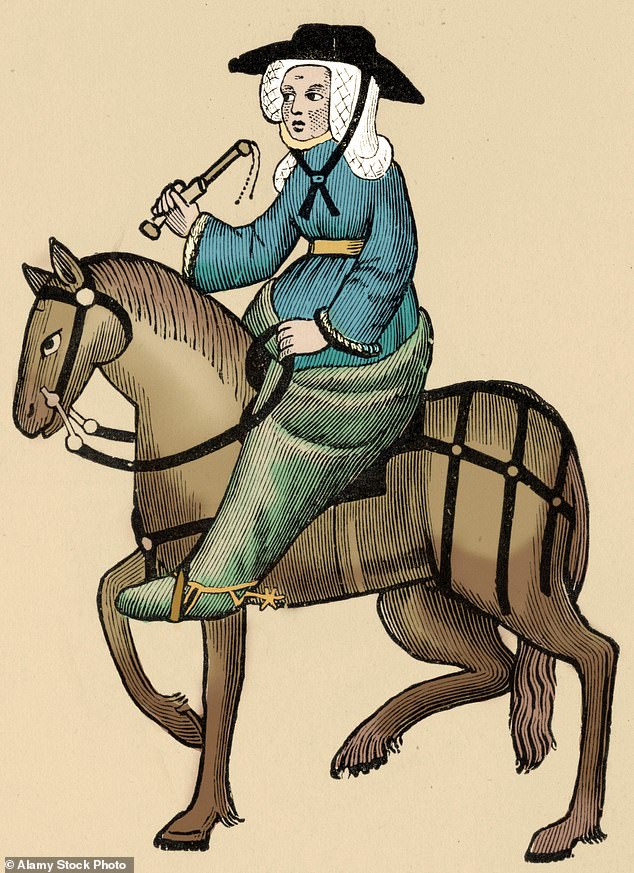
Characters in the Canterbury Tales include the promiscuous, five-times-married Wife of Bath.
‘It is ridiculous to issue such trigger warnings. From what moment in history are we going to censor literary texts, given that most are impregnated with a Christian worldview?
‘Warnings about Christian themes in literature are degrading to the Christian faith and stifle the academic progress of our students.
‘Censoring expressions of the Christian faith is erasing our literary heritage. True education involves and encourages understanding, not avoidance.
“Our universities should allow students who have chosen to study some of the greatest works of English literature the freedom of academic thought to make their own decisions rather than planting loaded warnings about the Christian faith.”
Also shocked by the trigger warning was Frank Furedi, emeritus professor of sociology at the University of Kent, who said: “Warning students of Chaucer about Christian expressions of faith is strange.
‘Since all the characters in the stories are immersed in a Christian experience, there are likely to be many expressions of faith. The problem is not the aspiring student readers of Chaucer but the ignorant, virtue-signaling academics.

Andrea Williams, executive director of Christian Concern, said: “From what point in history are we going to censor literary texts, given that most are imbued with a Christian worldview?”
Historian Jeremy Black, author of English Culture, added: “It is strange that anyone living in Britain should find it difficult to read works from our literary heritage that include expressions of the Christian faith.
‘Presumably this Nottingham nonsense is a product of the need to validate courses according to tickbox criteria. It is at once sad, funny, a perversion of intellectual life and a degradation of education.’
And Monsignor Dr Michael Nazir-Ali, former Anglican Bishop of Rochester, said: ‘The Canterbury Tales is the account of a pilgrimage from London to Canterbury.
‘If you are going to read a book about a pilgrimage, then the Christian faith will enter into it. I don’t see how you would understand the work without understanding the references to Christianity.
He added: “I think that when people are in college they should tackle difficult topics and make sense of them for their own thinking and life.” You can’t protect people from difficult topics.

The University of Nottingham said that “even those students who are practicing Christians will find aspects of the late medieval worldview which they find in Chaucer and others alienating and strange.”
‘That’s the point of going to university. I don’t think students need trigger warnings. What is needed is good teaching to be able to contextualize these difficult topics.”
John Sutherland, emeritus professor of modern English literature at University College London, said the warning was unworthy of a university that had trained author DH Lawrence.
He said: ‘There is a point at which shyness turns into censorship. The University of Nottingham has surpassed it. I would have expected more bravery from the alma mater of the author of Lady Chatterley’s Lover.
But a university spokesperson said: “The University of Nottingham champions diversity and its student body is made up of people of all faiths and none.”
“This content advisory does not assume that all of our students come from a Christian background, but even those students who are practicing Christians will find aspects of the late medieval worldview that they find in Chaucer and others alienating and strange.”
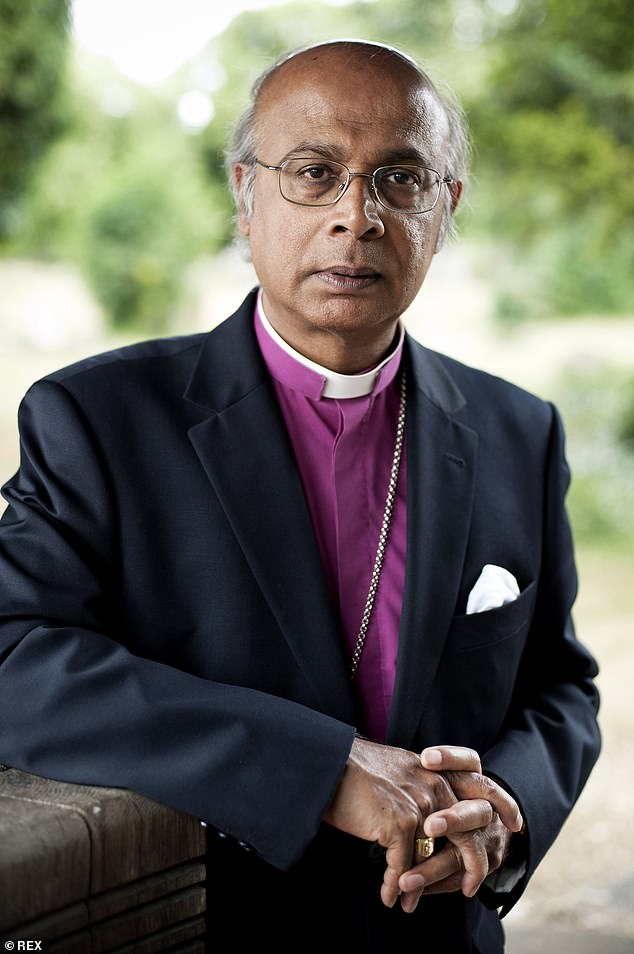
Monsignor Dr Michael Nazir-Ali, former Anglican bishop of Rochester, said: “If you are going to read a book about a pilgrimage, then the Christian faith will come into play.”
It comes after the Mail On Sunday revealed in February 2022 that Leeds University governors had applied ‘content warnings’ to dozens of works studied by university students on their English courses, including Tarzan, Black Beauty and Robinson Crusoe.
Edgar Rice Burroughs’ 1912 classic, Tarzan of the Apes, came with a warning that the story of an orphaned boy raised by primates contains “expressions of racism.”
Students were also warned that Anna Sewell’s 1877 novel Black Beauty contains “depictions of cruelty to animals.” And Daniel Defoe’s Robinson Crusoe was also singled out because it “discusses race and slavery” as well as the “typical attitudes of its time.”
Previous examples of content warnings applied to books also include Jane Eyre by Charlotte Brontë, Oliver Twist and Great Expectations by Charles Dickens and, in a move described as “beyond parody”, 1984 by George Orwell.
In August 2022, The Times reported how universities had applied trigger warnings to more than 1,000 books and were removing some from reading lists in a bid to protect students.


